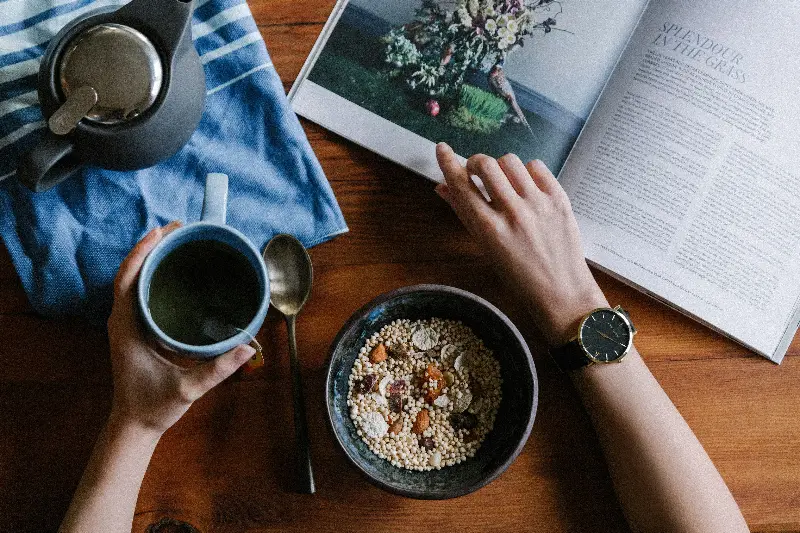Every morning, millions of people around the world wake up, brush their teeth, scroll through their phones, and grab a cup of coffee—often without giving these actions a second thought. These daily rituals are so embedded in our routines that they seem to operate on autopilot. But what’s really going on inside our brains that turns simple behaviors into powerful habits? Let’s journey into the fascinating science of habits and uncover how they shape our lives more than we might realize.

The Science Behind Habit Formation
It all begins in the brain. When we repeat an action in the same context over time, our brain starts shifting the decision-making from the conscious to the subconscious. This process primarily takes place in a region called the basal ganglia, which is responsible for automatic behaviors and forming routines. One of the most intriguing discoveries by neuroscientists is the so-called "habit loop," a cycle made up of three key components: cue, routine, and reward.
The cue is a trigger that tells your brain to go into automatic mode, such as the time of day or a specific emotion. The routine is the behavior itself, and the reward helps your brain decide if this loop is worth remembering for the future. If a behavior leads to a satisfying outcome, your brain stamps it in as a habit. Over time, the loop grows stronger, often making it harder to break old habits or adopt new, healthier ones.
Why Some Habits Stick—And Others Don’t
Ever wondered why quitting smoking or sticking to a gym routine feels like climbing a mountain, while grabbing an afternoon snack seems effortless? The answer lies in the way our brains prioritize rewards. Habits that provide immediate pleasure or relief, like that sugar rush from a cookie, are reinforced much faster than ones with delayed benefits, like working out for long-term health.
Psychologists also point to a quirky brain phenomenon called "cue-reactivity." When a habit is well established, just seeing or thinking about the cue can trigger a craving, making even an unwanted habit hard to resist. That’s why smokers might automatically reach for a cigarette just by stepping outside, or why you find yourself craving popcorn every time you sit in a movie theater.
Surprising Influences: Environment Shapes Habits
While willpower is often praised as the secret ingredient to self-improvement, research tells a different story. Studies have shown that our environment has a huge impact on the habits we form—and whether we stick with them. According to behavioral scientist Wendy Wood, up to 43% of our everyday actions are performed out of habit, with many happening simply because of cues in our surroundings.
This helps explain why rearranging your office desk can spark a boost in productivity or why pairing up with a "gym buddy" increases workout consistency. Even subtle changes, like moving unhealthy snacks out of sight, can make it easier to break the cycle of mindless eating. The takeaway? Changing your environment can sometimes be more effective than relying on sheer willpower alone.
The Power Of Small Changes
It might be tempting to overhaul your entire routine overnight, but science suggests a more gradual approach. Psychologist B.J. Fogg introduced the concept of "tiny habits," showing that making small, incremental changes can be surprisingly effective. This could mean doing just two pushups after every bathroom break or drinking a glass of water each morning before coffee.
By shrinking the new behavior to something almost too easy to fail, you sidestep the mental resistance that comes with big lifestyle shifts. As these micro-habits become automatic, they generate momentum. You might find yourself naturally doing 10 pushups before you know it or swapping that glass of water for a healthy breakfast. Success breeds motivation, making it easier to continue on the path of positive change.

Can We Really Break Bad Habits?
Here’s some good news—habits are not destiny. While the neural pathways formed by repeated behaviors are resilient, they’re not set in stone. Instead of trying to erase a bad habit, experts recommend focusing on replacing the unhealthy routine with a new, more beneficial one using the same cue and reward. This approach leverages the existing structure of the habit loop without requiring you to start from scratch.
For instance, if stress triggers an evening binge-watch and late-night snacking, try swapping the routine with a short walk or a calming tea ritual. You still get the stress relief (reward), but through a healthier behavior. Over time, the new loop can take hold, making the old pattern less automatic.
Hidden Benefits: Habits Help Us Thrive
Far from being mindless, habits actually free up mental energy for more important decisions and creativity. By automating repetitive tasks, our brains conserve cognitive resources, allowing us to focus deeply when it truly matters. This explains why successful athletes, entrepreneurs, and artists often swear by their daily rituals—these routines provide a stable foundation that empowers them to innovate and achieve more.
Ultimately, understanding the science behind habits gives us the tools to take control of our daily lives. With a little awareness and some strategic tweaks, you can unlock the power of habits—and set yourself up for a happier, healthier, and more fulfilling life.
